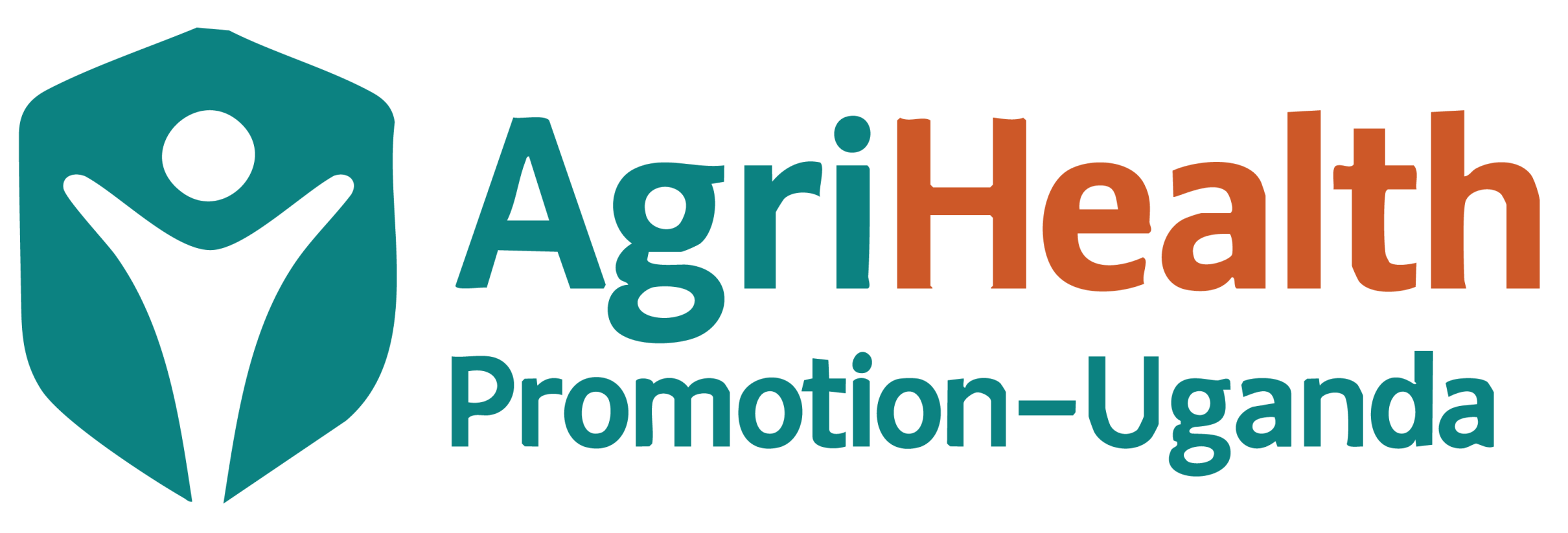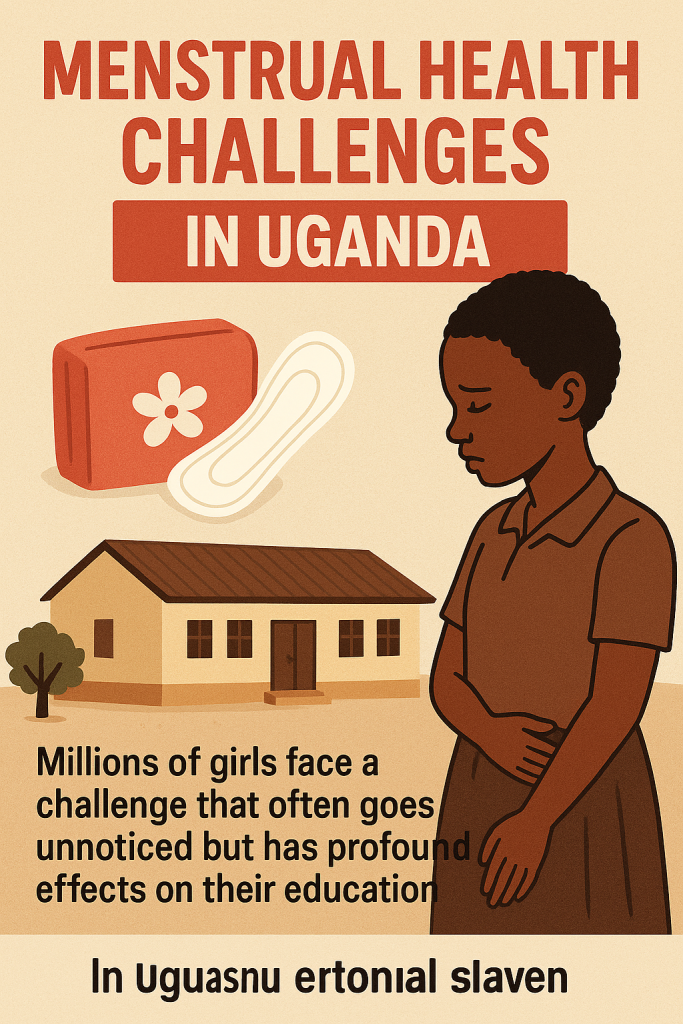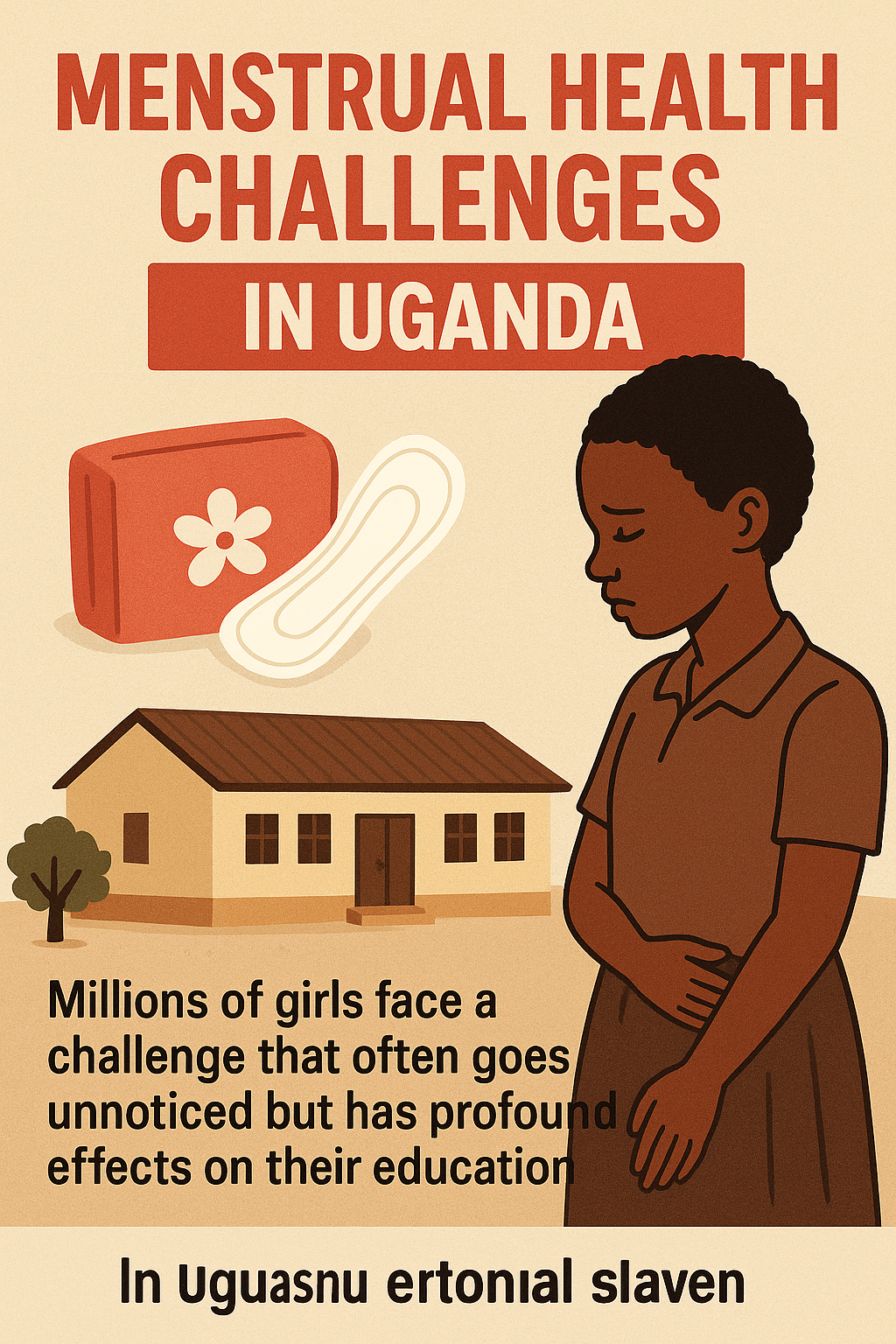Every month, millions of girls across Africa face a challenge that often goes unnoticed but has profound effects on their education: menstruation. In Uganda, more than half of school absenteeism among adolescent girls has been linked to menstrual hygiene challenges (UNICEF Uganda, 2021). For some, the lack of affordable products and inadequate sanitation facilities eventually leads to dropping out altogether.
The reality is stark. A packet of disposable sanitary pads can consume up to 10% of a low-income family’s monthly income (World Bank, 2018). Faced with this cost, many families cannot provide consistent supplies, forcing girls to resort to unhygienic alternatives such as rags, newspapers, or leaves. These options not only compromise health but also strip girls of confidence and dignity.
Schools often lack basic water and sanitation infrastructure. Only about 22% of Ugandan schools provide adequate sanitation facilities that meet the needs of menstruating girls (World Health Organization, 2020). Without safe spaces to manage their periods, many choose to stay home. Missing several days every month compounds into a serious academic disadvantage and, in some cases, leads to permanent dropout.
Beyond infrastructure and affordability, cultural stigma remains a heavy barrier. In many communities, menstruation is shrouded in silence, leaving girls with limited knowledge and support (UNESCO, 2019). The result is not just missed school days but also diminished opportunities for higher education, employment, and long-term empowerment.
Addressing menstrual health is about equality, education, and human dignity. Affordable products, improved school sanitation facilities, and open conversations are vital steps. When girls are supported to manage menstruation safely and confidently, they are better able to stay in school, complete their education, and contribute fully to their communities.







